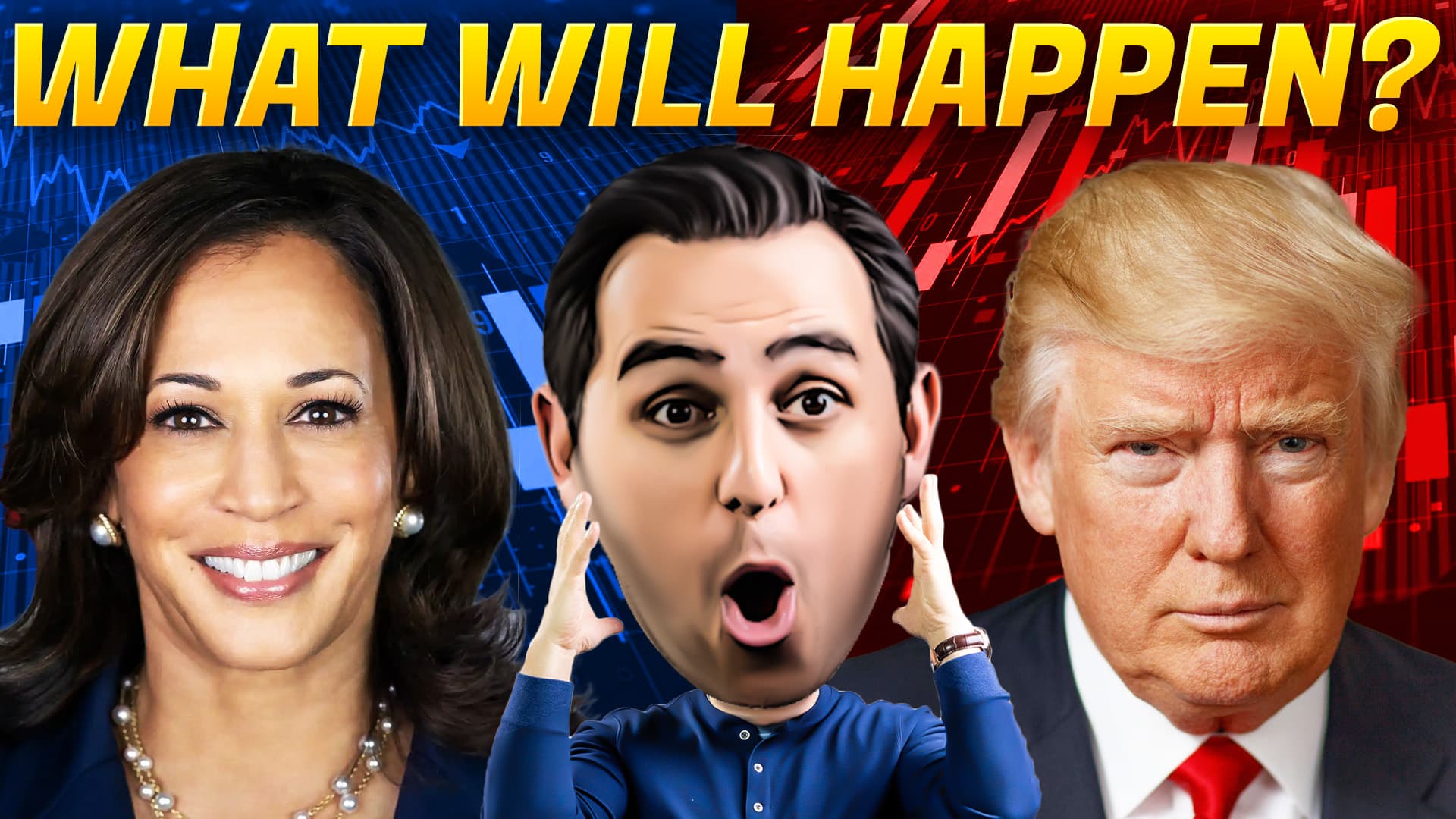Are Republicans or Democrats Better for the Stock Market?
Depending on who wins this next election could alter the next four years. Let’s start by looking at history to see how past presidential changes affected the stock market.

How the 2024 Election Could Impact Your Stocks: A Historical Perspective
As we approach the 2024 election, it’s clear that the results could have significant ramifications for the stock market. The potential outcomes—whether we see a shift in power to a new president, or major international developments like conflicts in Ukraine, the Middle East, or with China—might influence your investments. With recent events like an assassination attempt on Trump and Biden potentially stepping down in favor of Kamala Harris, it’s crucial to understand how past presidential changes have affected market performance.
Historical Market Performance Based on Presidential Leadership
To get a clearer picture, let’s dive into some historical data. Since 1950, the performance of the stock market under different presidential and congressional combinations has varied significantly:
- Democratic President with Democratic Congress: 8.72% annual return
- Republican President with Republican Congress: 11.7% annual return
- Democratic President with Republican Congress: 14.5% annual return
- Republican President with Democratic Congress: 1% annual return


The data suggests that when there is a balance of power—whether it’s a Democratic president with a divided Congress or a Republican president with a divided Congress—the returns tend to be higher. This indicates that a divided government might provide a more stable environment for market performance.
However, it’s essential to consider whether these correlations truly imply causation. The sample size since 1950 is relatively small, with only 14 presidents having served during this period.
Market Resilience Amidst Adversity
Despite numerous challenges over the decades, including wars, economic crises, and other upheavals, the U.S. stock market has generally trended upwards. This resilience can be attributed to the ongoing growth of the American economy. For example, George W. Bush's presidency saw the market starting at a peak before ending at a low due to the Great Financial Crisis. Despite this, long-term trends have remained positive.
How Past Presidents Have Performed
Paul recently discussed how past presidents have influenced market performance, shedding light on their impact. For instance, Lyndon B. Johnson left office with the S&P 500 at 102, while Richard Nixon’s departure saw it at 81, reflecting a 20% decline during his term. In contrast, when Ronald Reagan took office in 1982, the market was significantly undervalued, starting at 134 and ending at 286 by the end of his presidency, more than doubling the S&P 500’s value. This performance highlights how market valuations, rather than solely presidential actions, play a crucial role in determining returns.
The Role of Government Policies
Understanding how presidential policies impact the market requires examining their core philosophies. Republicans typically advocate for smaller government and lower taxes, while Democrats support larger government and higher taxes.
Historically, tax cuts have been a favored policy for Republicans, aimed at stimulating economic growth. Yet, these tax cuts need to be balanced with a corresponding budget to be truly effective. For instance, Ronald Reagan’s presidency led to significant debt accumulation despite tax cuts, and the current debt situation is alarming, with the U.S. spending over a trillion dollars annually on interest alone.
On the flip side, Democrats often focus on increasing government spending to support various programs. This approach can also impact the economy and the stock market, though the effect might be less direct compared to tax policies.
The Impact of Valuations
Valuation levels are crucial in determining market returns, sometimes more so than the political climate. For example, when Reagan took office in 1982, the market was significantly undervalued, which contributed to strong performance during his tenure. Conversely, high valuations often correlate with lower future returns. The market is currently at historically high valuations, reminiscent of 1928 before the Great Depression, suggesting that future returns might be lower than those of the past decade.
The Importance of Investment Strategy
Regardless of the election outcome, focusing on a solid investment strategy is essential. Investing in great companies at reasonable prices and dollar-cost averaging into low-cost ETFs are proven strategies that can yield good returns over time, independent of who holds the presidential office.
As the election approaches, the best approach is to stay informed and stick to a well-thought-out investment strategy. Avoid letting political changes dictate your investment decisions and instead focus on fundamental values and long-term growth.
If you're looking to refine your investment strategy, consider joining our community. We’re currently offering an opportunity to get grandfathered into our comprehensive tools and resources before upcoming changes. This offer will give you access to everything you need to make informed investment decisions, regardless of political developments.
How The
2024 Election
Will Change
The Stock Market






